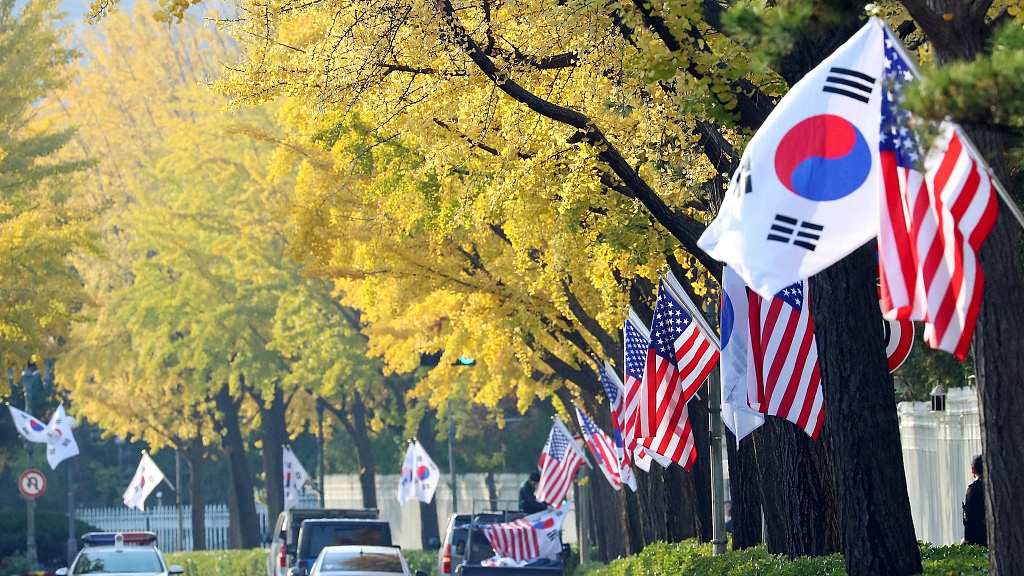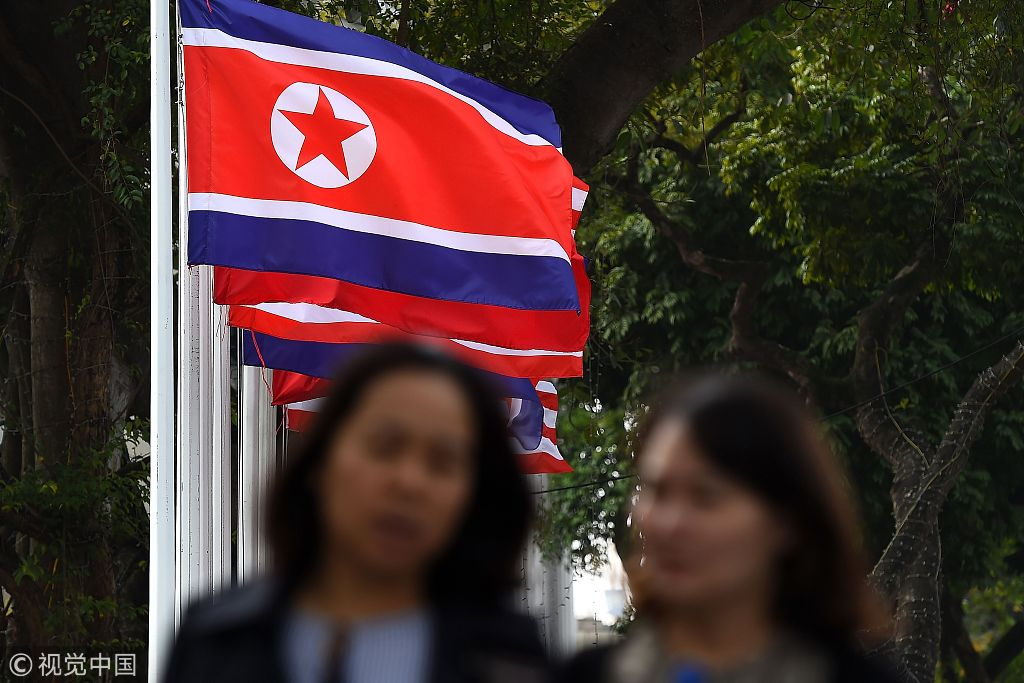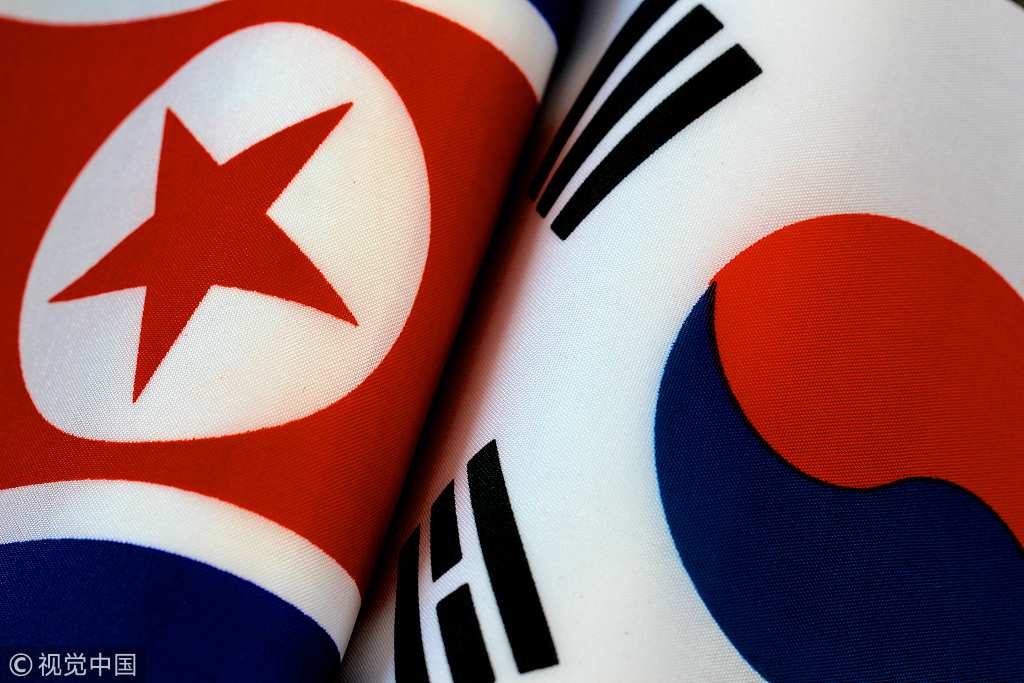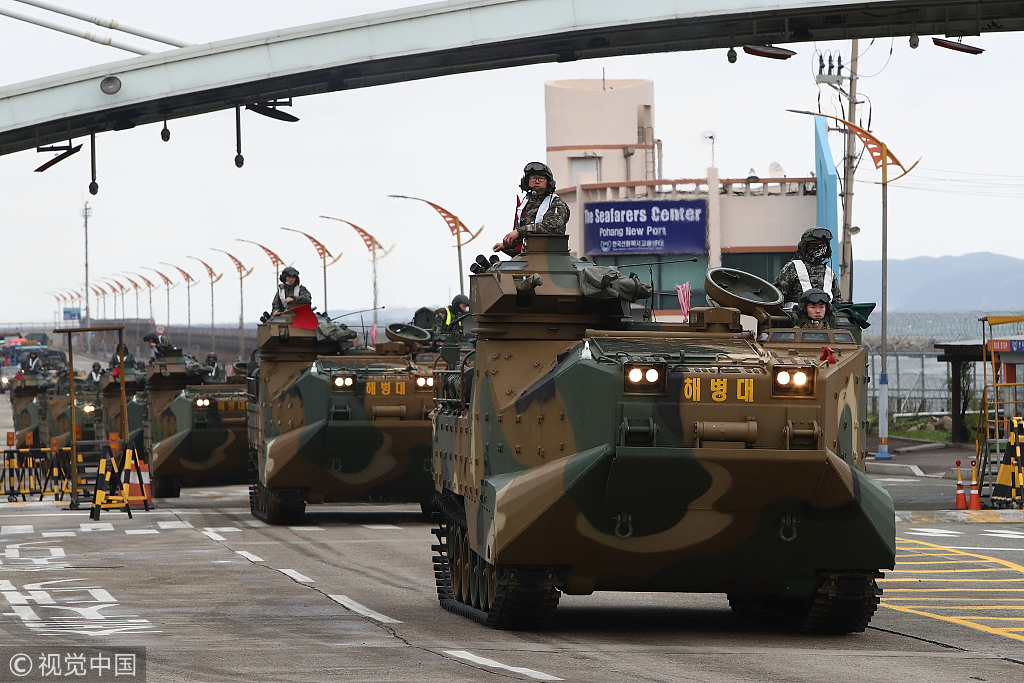
Opinion
22:44, 03-Mar-2019
Downgrading exercises keeps the peace process alive
Tom Fowdy

Editor's note: Tom Fowdy graduated with an Msc. in Chinese Studies from Oxford University after previously majoring in Politics at Durham University. He has published a number of pieces on the international relations of China and the Democratic People's Republic of Korea. The article reflects the author's views, and not necessarily those of CGTN.
After the turmoil of the Hanoi summit, the following weekend brought about a big announcement concerning military affairs on the Korean Peninsula. That is: the key military exercises held between the Republic of Korea (ROK) and the United States, known as Foal Eagle and Key Resolve will be formally canceled and replaced with rebranded, downgraded low-key events throughout the year.
In a joint telephone call between the secretaries of defense of the two countries, bound together in a treaty alliance, the motivation for the decision concerned the need to “support diplomacy” on the Korean Peninsula.
These exercises have always been controversial to Pyongyang, which has repeatedly denounced them as rehearsals for invasion or responded with their own escalation of tensions.
More hawkish voices towards the DPRK disapprove of this decision. According to them, cancellation or downgrading of the exercises weakens “military readiness” between the two allies and leaves them vulnerable to Pyongyang, which according to such voices may increase their capability to “invade” their southern neighbor.
To support this argument, they cite that Pyongyang does not cancel “military exercises of its own” in correspondence with such as they hype up the overall threat from the North.

Women walk past DPRK flags on a street in Hanoi, March 1, 2019. /VCG Photo
Women walk past DPRK flags on a street in Hanoi, March 1, 2019. /VCG Photo
None of this is really logical. With the allies possessing overwhelming military superiority, the cancellation of military exercises is not a sign of weakness, but a necessary incentive to facilitate a climate of peace, stability and diplomacy on the Korean Peninsula.
It is a more pragmatic extension to outright cancellations which took place last year, which have been upheld in exchange for a freeze on DPRK nuclear and missile testing. By choosing to continue this trend, the U.S.-ROK decision ensures the creation of a safeguard to prevent a recurrence of tensions and mutually provocative behavior.
Those who hype up the “DPRK military threat” to the ROK perpetuate the image of a Pyongyang which is a completely irrational actor, ready and eager to attack on any grounds at any time. This narrative relays back to the Korean War and has persisted ever since, but there are some problems with using it in the present.
This is no longer the 1950s, those who advocate such a threat have been dismissive of the fact that for at least 30 years, the balance of power has long been in the South's favor. Seoul holds overwhelming advantages in all-round military capabilities to Pyongyang.
Although Kim's political power has engaged in acts which may be legitimately perceived as menacing, they are not deluded or unrestrained concerning their capabilities, and some facts to consider are as follows:
The ROK's military budget is bigger than the DPRK's entire economy. In 2017, the latter's estimated gross domestic product stood (nominal) at only 25 billion U.S. dollars, the former's military expenditure in the same year accounted for 39 billion U.S. dollars.

National flags of the DPRK (L) and the Republic of Korea. /VCG Photo
National flags of the DPRK (L) and the Republic of Korea. /VCG Photo
Owing to out-dated equipment and economic decline, the DPRK's air force is largely obsolete. One might instead point to their standing army of over 1 million. But there is a catch: DPRK soldiers are poorly trained, unequipped, sometimes malnourished and of low morale.
A typical job in the military in this country does not actually involve serious training unless you are part of a select elite, rather you simply become an outsourced form of labor to industries such as construction.
Despite this obvious divergence in capabilities, these enormous military exercises have become a staple between the U.S. and ROK extending back at least 21 years.
The drills are described as defensive, yet most official discourse in recent years has rather involved the question of America going the other way, and with Trump threatening military action throughout all 2017, who can deny this?
Of course there have been unwanted provocations from Pyongyang over the years, as well as the added factor of nuclear and missile testing, but the idea that the DPRK would otherwise launch a random, irrational and all-out, bound-to-fail invasion or nuclear attack on its neighbor has at best been a convenient political mythology, hyped up for the purpose of justifying American militarism in the Asia-Pacific.

ROK Marines take part in an ROK-U.S. joint military exercise in Pohang, ROK, April 5, 2018. /VCG Photo
ROK Marines take part in an ROK-U.S. joint military exercise in Pohang, ROK, April 5, 2018. /VCG Photo
Given this, the downgrading of Foal Eagle and Key Resolve do not seriously change the balance of power on the Korean Peninsula. When the DPRK has condemned these exercises, it is because they have a conscious awareness of their own inferior position, as well as recognition that in the post-1991 world, American-led wars have been common and real threats.
They have attempted to address this imbalance by going nuclear, but this has been more for deterrence than outright attack. The other side can argue the same thing of course, and they are within their rights, which is all the better that when attempting to resolve the crisis between the two countries, this kind of thing is avoided.
Thus, to rearrange these exercises is the right thing to do in light of the diplomatic process. It holds firm to Pyongyang on the promises of 2018, ensures non-provocation and prevents Kim Jong Un from having an excuse to return to missile testing.
As a result, this decision creates stability and upholds the pathway to peace. In the aftermath of an unfortunate outcome in Hanoi, the United States has been both prudent and wise to ensure that the conditions which ultimately facilitated diplomacy in the first place do not fall apart. With combat readiness preserved in the new smaller exercises, there will be nothing to lose by doing so.
(If you want to contribute and have specific expertise, please contact us at opinions@cgtn.com)

SITEMAP
Copyright © 2018 CGTN. Beijing ICP prepared NO.16065310-3
Copyright © 2018 CGTN. Beijing ICP prepared NO.16065310-3